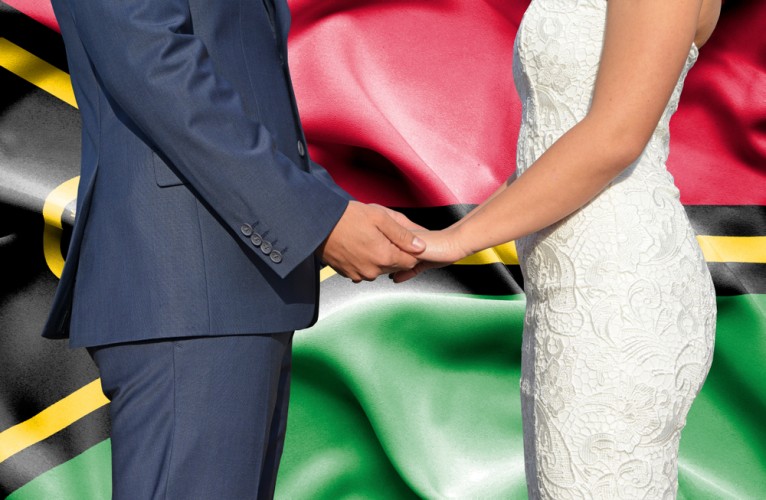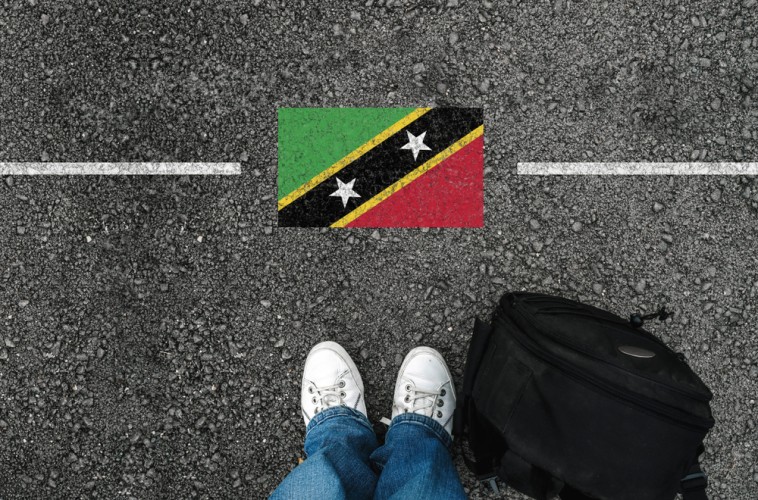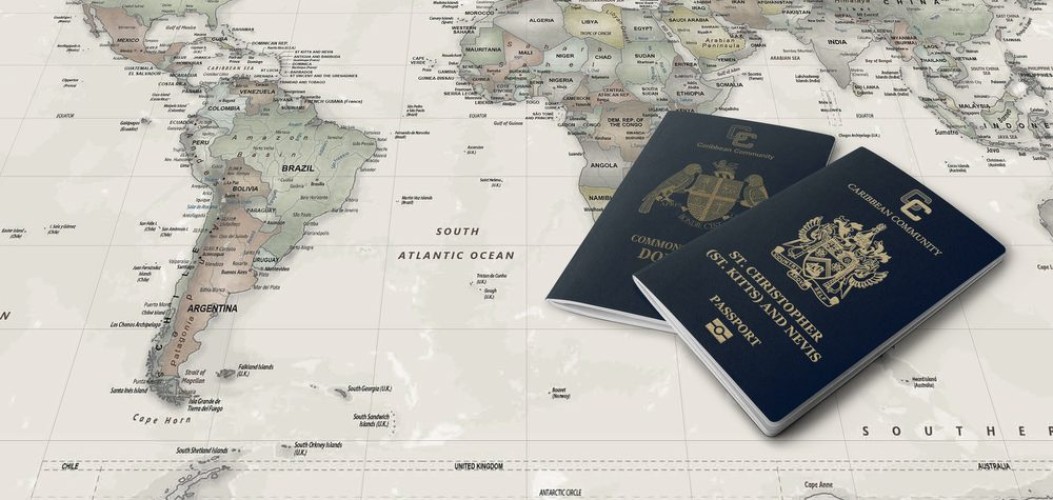St. Lucia is a small island country located in the Caribbean. With an area of just above 600 kilometers, or 240 square miles, and a population of around 100,000 inhabitants, this place is comparable to some cities in size. After being colonized by both the British and French in the past, the country gained its full independence in 1977 and has remained sovereign since then.
Being a small and neutral nation, Saint Lucia holds good and stable relations with many countries and organizations in the world. It also has plenty (for its size) of tourist attractions and often appears on lists of places to visit.
Our article will focus on getting Saint Lucia’s citizenship by investment (CIB).
We will take a look at the country’s passport’s rankings, benefits, visa-free options for its holders, and ways to get it. Let’s start.
St. Lucia’s National ID Overview
Once you become a citizen of the country, you will get your ID card. Unlike the passport that is used for international travel purposes, this one is for domestic purposes. Let’s check out how it looks.
On the left side, you can find a photo of the holder. It’s in color, and there’s a frontal portrait of the owner. Below it, there’s a holder’s signature.
On the right part, you will find the holder name and the ID number on the upper side of the card. Below, there’s the main information about them. This includes fields such as sex, date of birth, nationality, and place of birth. Below, there are dates: one for issue and one for expiry. Finally, there’s a holder address.
St. Lucia’s Passport Overview
And now it’s time to look at the passport itself. It is an international travel document in the dark blue color. It’s a Caribbean Community passport, meaning that it’s issued by the country that’s a member of the CARICOM.
Saint Lucia’s Passport Ranking
According to passportindex.org, one of the leading websites and services for global passport rankings, Saint Lucia’s one holds the 29th place. It is an impressive achievement, placing the country’s passport close to the likes of Macau, Mauritius, and Paraguay. The citizens of the island can visit a whopping number of places on a visa-free basis: 99 countries. 40 additional countries issue their visas on arrival. All in all, this makes traveling with the Saint Lucia’s passport quite easy and enjoyable. What’s even more great, is that it’s easy to get the visa into the US with the St. Lucia’s passport and traveling across the Schengen countries is visa-free.
Benefits Of St. Lucia’s Passport
We have already mentioned some of the strengths of the country’s passport, but there’s more to it. Let’s list other benefits that one can get by holding Saint Lucia’s passport. Thankfully, there are plenty.
- Easy travel. We have already covered it, mentioning that there are 99 visa-free countries, including Shengen ones and the UK, and 40 countries with a visa on arrival. You can also get a US visa without any issues. You can apply for the US 10-years visa in the consulates.
- Easy to get. Compared to the passports of many other countries, the St. Lucia one makes the process of getting it extremely simple.
- Great relations with many countries. Saint Lucia is mainly neutral and the government tries to be on at least moderately good terms with many other places.
- Access to the country’s healthcare. The country has a relatively good healthcare system, although not every citizen is eligible for the free one.
- Tax benefits. The island has a rather attractive tax system. Although the taxes are not the lowest in the world, they are still low enough to get plenty of business owners and freelancers interested.
- No restrictions on dual citizenship. Saint Lucia allows it, so the rest depends on the laws of your home country. If everything works, you can have dual citizenship, enjoying the perks of having the passports of both countries.
As you can see, the country can offer plenty of benefits for its citizens. The passport can be a great option for many people willing to get another citizenship or use the country’s one as their only residence.
Visa-Free Countries With St. Lucia’s Passport
As we have mentioned in one of the previous sections, the country’s passport is strong and it allows its holder to visit 99 countries without any visa, which is quite impressive. Below are some of the most popular destinations one can reach without a visa, as well as places with visas on arrival or their electronic versions.
| Visa-free countries |
|
|
| Visa on arrival (eVisa) |
|
|
Some visa-free countries on the list allow St. Lucian citizens stay for 90 days or even longer, while others only allow them to stay for 30 days. The list is incomplete and includes mainlythe most notable destinations. There are many other countries the citizens of the island can visit without any sort of visa, such as Venezuela, Poland, Portugal, and Romania, among many others. Overall, one can visit all of the Shengen countries without a visa. The US is not on the list, but owning St. Lucia’s passport makes one eligible for getting the country’s visa without any issues.
Taxation Laws And Business Incentives
Taxation Laws
- Corporate Tax:
The corporate tax rate is 30%. - Personal Income Tax:
Saint Lucia does have personal income tax. The rates are progressive, ranging from 10% to 30%
Residents are taxed on their worldwide income, while non-residents are taxed only on income sourced within Saint Lucia. - Value Added Tax (VAT):
The standard VAT rate is 12.5%.
Some goods and services are zero-rated or exempt from VAT. - Withholding Tax:
Dividends, interest, and royalties paid to non-residents are subject to withholding tax at a rate of 25%. - Property Tax:
Property tax is based on the market value of the property. The rates vary depending on the type of property but generally range from 0.25% to 0.4%. - Import Duties:
Import duties vary based on the type of goods but typically range from 5% to 40%.
Business Incentives
- Investment Incentives:
The government offers various incentives to attract foreign investment, including tax holidays, duty-free importation of machinery and equipment, and exemptions from other taxes for investments in sectors such as tourism, manufacturing, agriculture, and information technology. - Economic Citizenship Program:
Saint Lucia has a Citizenship by Investment Program (CIP) that allows investors to obtain citizenship through a significant investment in real estate, a contribution to the National Economic Fund (NEF), an investment in an approved enterprise project, or the purchase of government bonds. - Export Incentives:
Businesses engaged in export activities can benefit from duty-free imports of raw materials, machinery, and equipment used in the manufacturing process. - Tourism Incentives:
The Tourism Incentives Act provides tax holidays, duty exemptions, and other benefits for approved tourism projects. - Small Business Development:
There are various programs aimed at supporting small businesses, including access to finance, training, and technical assistance. - Free Trade Zones:
Designated free trade zones offer benefits such as tax exemptions, duty-free imports, and other incentives for businesses operating within these zones.
Regulatory Environment
- Ease of Doing Business:
Saint Lucia has implemented reforms to make it easier to start and operate a business, including streamlined procedures for business registration and obtaining permits. - Investment Promotion:
Invest Saint Lucia is the main agency responsible for promoting and facilitating investment in the country. They offer a range of support services to investors, including assistance with permits and licenses.
Summary
Saint Lucia offers a business-friendly environment with a range of tax incentives and a Citizenship by Investment Program that is attractive to foreign investors. The country provides significant tax holidays, duty exemptions, and other benefits to encourage investment in key sectors such as tourism, manufacturing, and agriculture. The regulatory environment is supportive of business operations, with efforts made to streamline procedures and facilitate investment.
St. Lucia Citizenship
Looking at all of the advantages that a country’s passport can offer, some people might become interested in getting one. Thankfully, the process is rather straightforward: the country does not place very strict requirements for getting its passport, so one might as well try their luck.
Saint Lucia’s Passport Requirements
As we have said before, the requirements are lax. There are several ways to get citizenship of the country. The main routes are: by descent or by investment. Each of them includes different requirements, but quite a few are similar across the board. Our article focuses on the ways to get the country’s citizenship via investment, so what we will describe below will revolve around this method.
- Citizenship by direct investment. This route requires you to pay around $240,000 that you will invest in the country’s economy. If an applicant has a spouse then there will be a need to invest additional $35,000, and the sum grows a bit further if they have children or other dependents. The price might sound large, but actually such investments cost less compared to many other places.
- Real-estate investment. This method involves buying or investing some real estate in the country. The minimum sum is $300,000, but there are also additional fees for each family member.
- Investment in an approved enterprise project . In this case, Applicant applying with up to three qualifying Dependants – $250,000. Plus applicable administration fees.
As you can see, all of these methods involve significant amounts of money but it’s still cheaper compared to many countries of the world. All in all, we think that this investment is worth it, since the country has a powerful passport, and some options will even get you money back.
How To Apply
Now that you have got familiar with the requirements, it’s time to take a look at the steps required for applying for the country’s passport.
Everything is fairly straightforward and much easier compared to many other countries, provided you have enough money to work with or can get a citizenship by descent.
The application processing time isn’t long either: around 3-4 months on average.
- Decide how you are planning to get citizenship. We explained the methods in the “Passport Requirements” section. If you can get it by descent, then everything is much easier, but we will cover the steps required for getting citizenship by investment.
- Prepare the needed documents and provide them. The documents will include your existing passports, bank statements proving the source of your money and the fact that you own it.
- Wait for the due diligence. The country’s immigration unit will check an applicant’s information and finances. An interview is a mandatory part of the process.
- Making an investment. Now it’s time to transfer the money into the country. You will now either buy real estate, make a direct investment, purchase government-issued bonds, or create a business. We covered possible options in the “Passport Requirements” section.
- Receiving the passport. Now it’s time for the final stage: you can now get the country’s citizenship. First, you will receive a certificate within 4 weeks. Then you will get the passport.
And that’s all. The process isn’t long, and while there’s quite a lot of bureaucracy involved, it’s still more straightforward compared to many other countries. Either way, we recommend getting additional consultations and help if you want to become the country’s citizen by investment.
St. Lucian’s Passport Renewal
You have to review the country’s passport after 5 years of its initial issuance. After that, you will have to do so every 10 years. It’s possible to do so at Saint Lucia’s consulates or embassies in other countries. And, of course, you can do so from within the country. Don’t forget that there are small fees for passport renewal.







